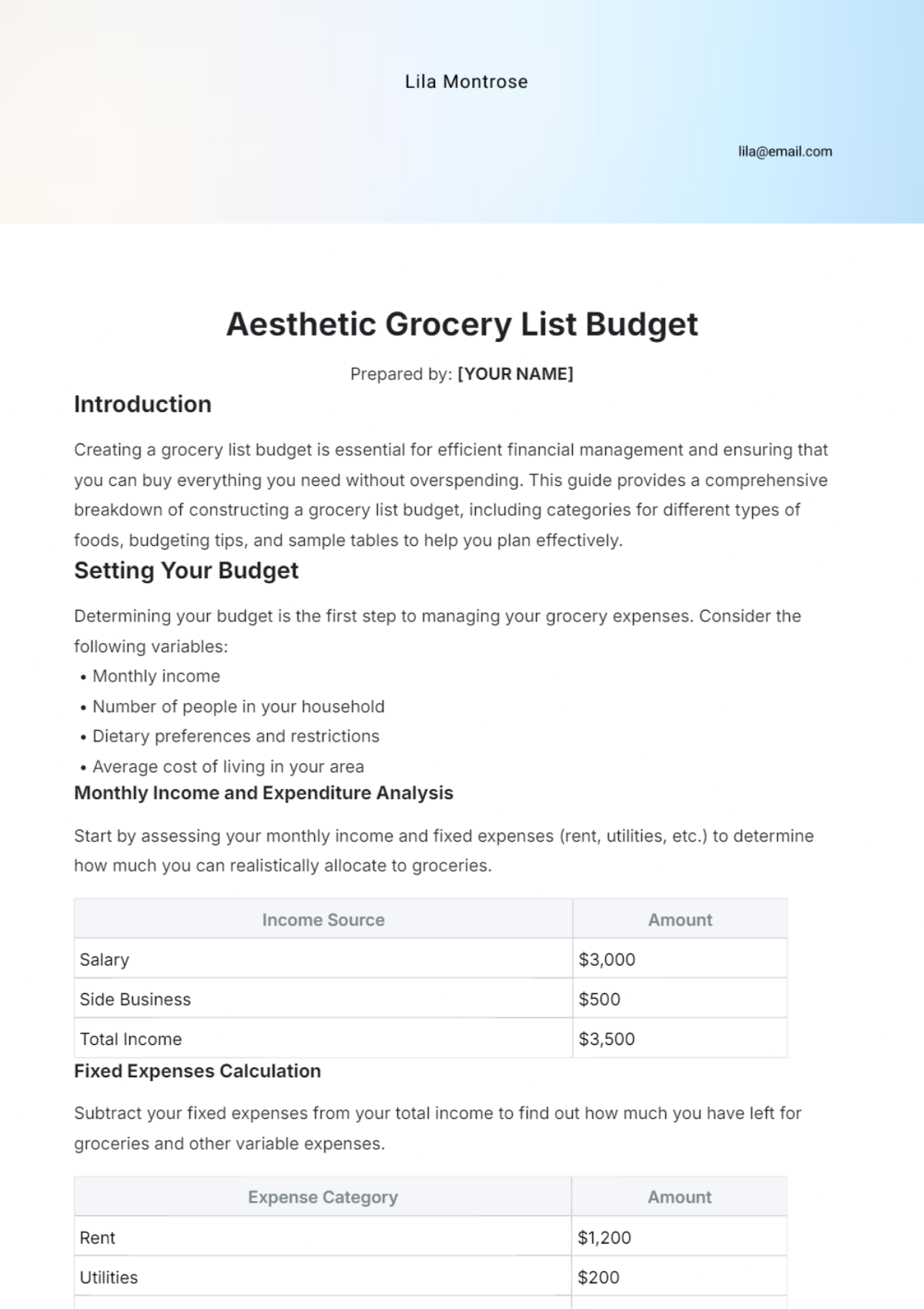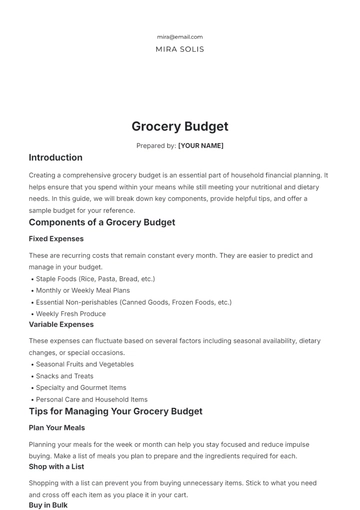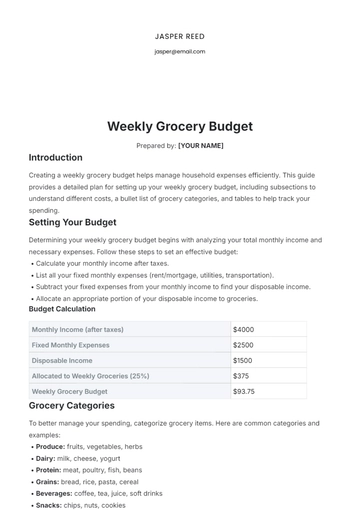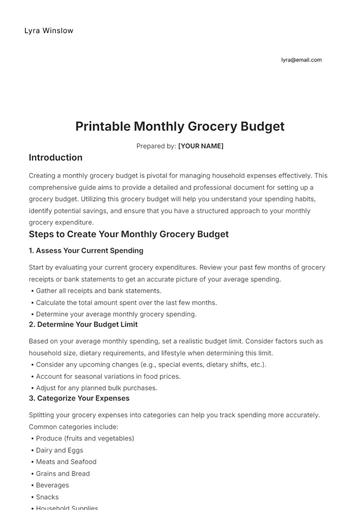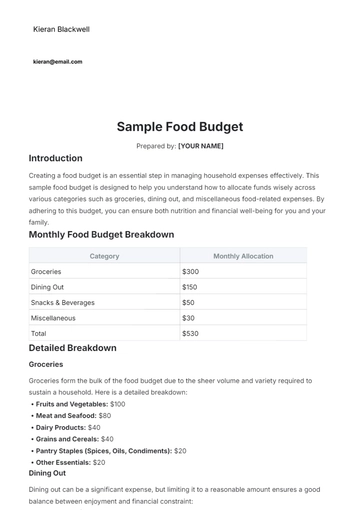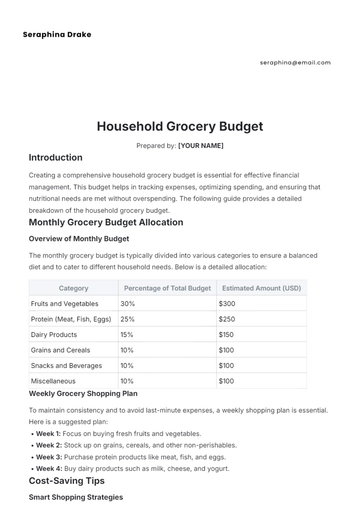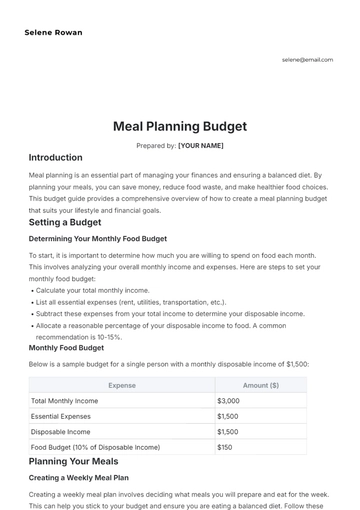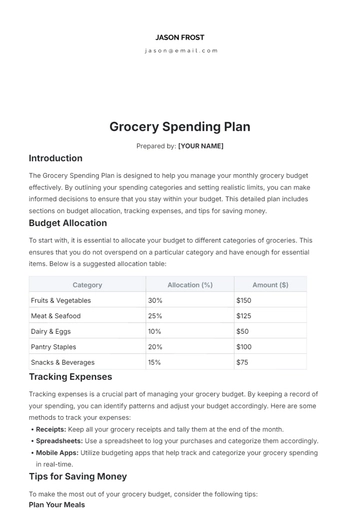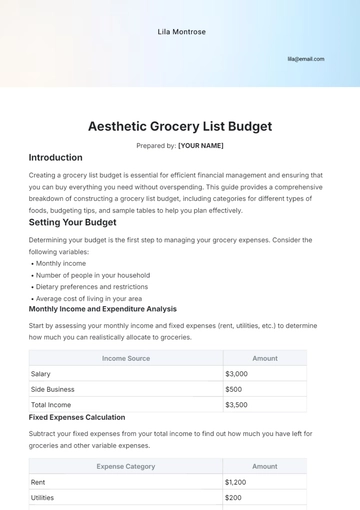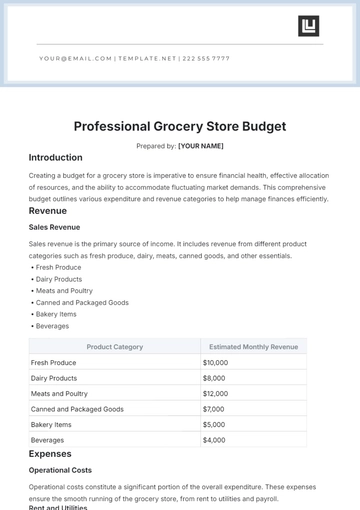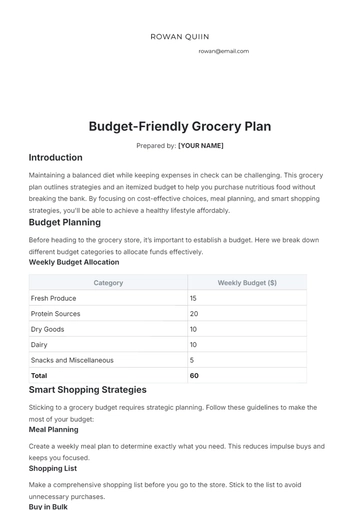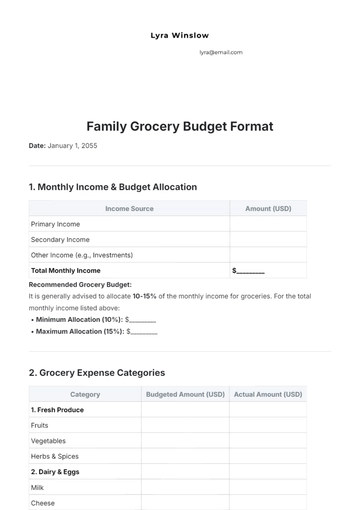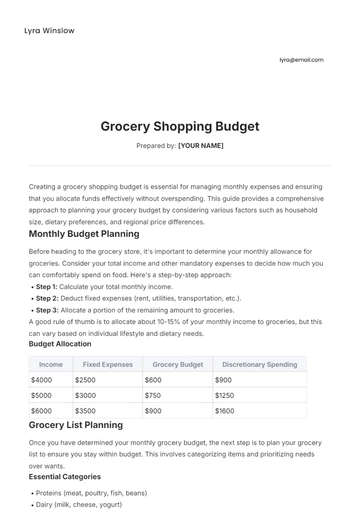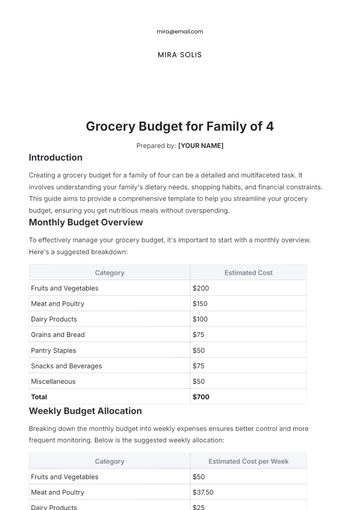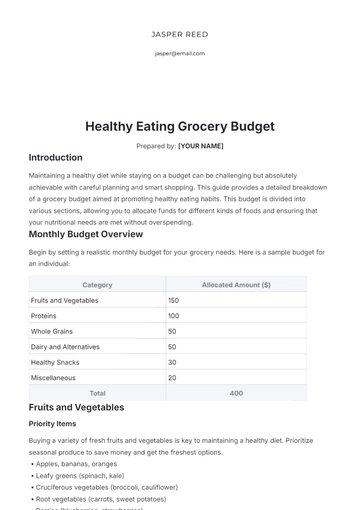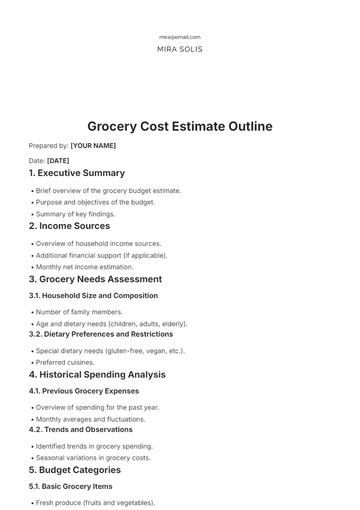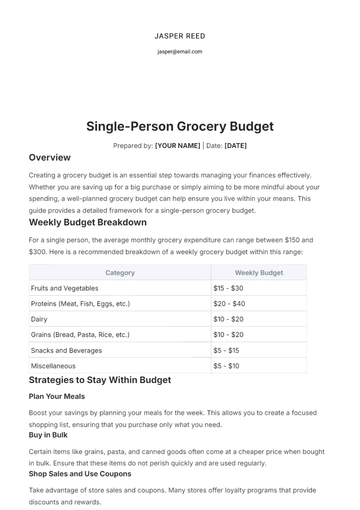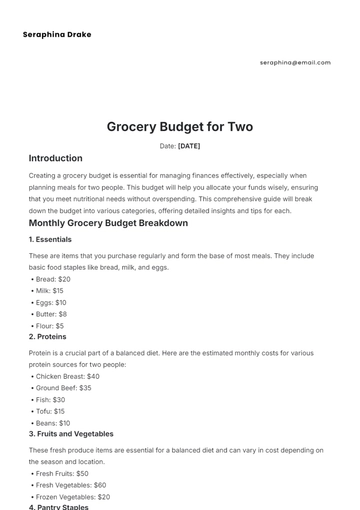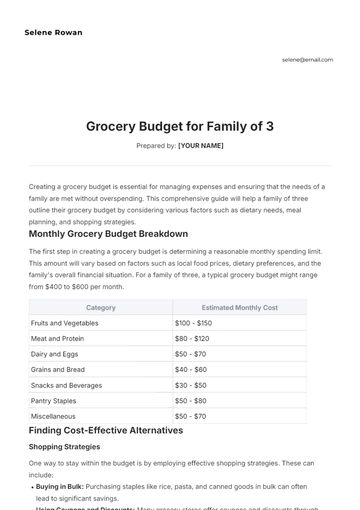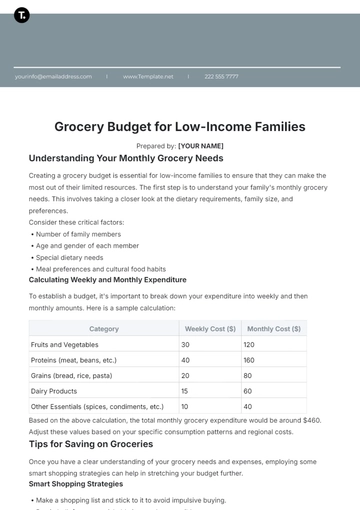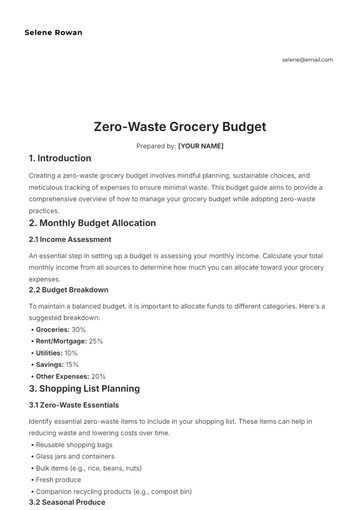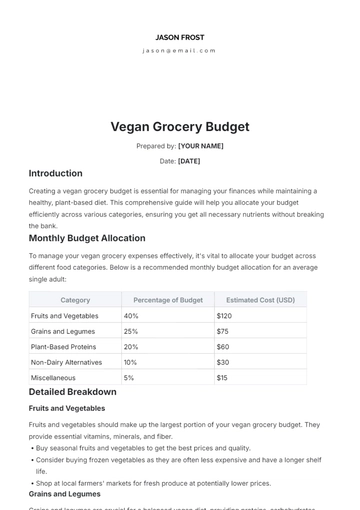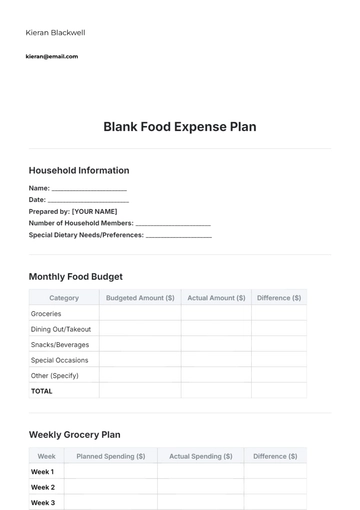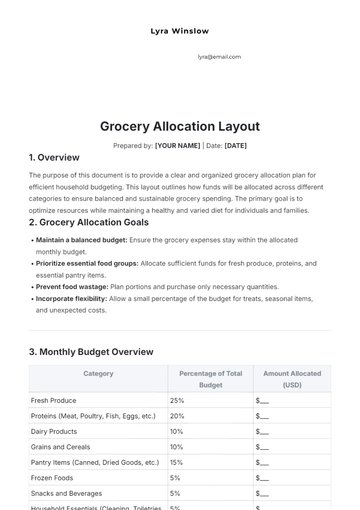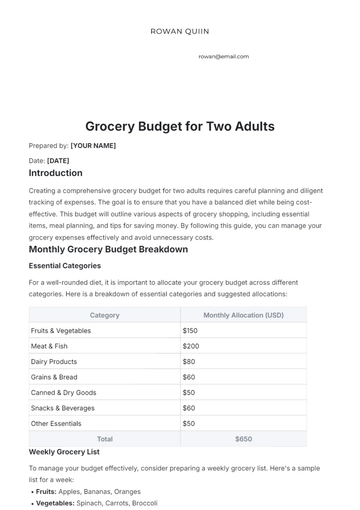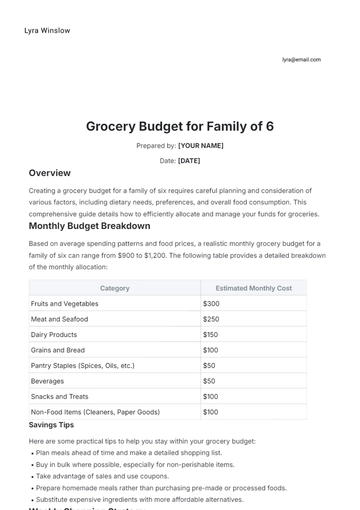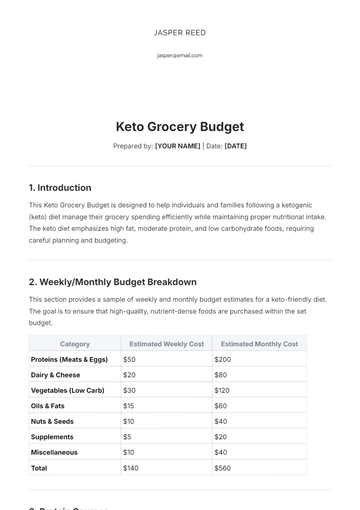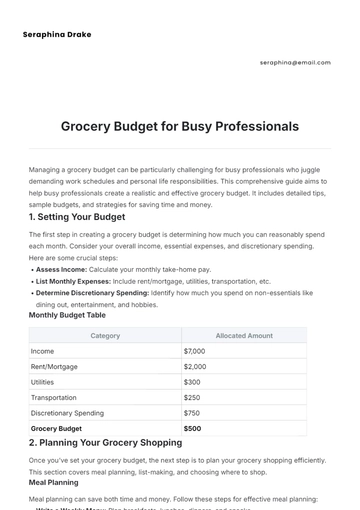Aesthetic Grocery List Budget
Prepared by: [YOUR NAME]
Introduction
Creating a grocery list budget is essential for efficient financial management and ensuring that you can buy everything you need without overspending. This guide provides a comprehensive breakdown of constructing a grocery list budget, including categories for different types of foods, budgeting tips, and sample tables to help you plan effectively.
Setting Your Budget
Determining your budget is the first step to managing your grocery expenses. Consider the following variables:
Monthly income
Number of people in your household
Dietary preferences and restrictions
Average cost of living in your area
Monthly Income and Expenditure Analysis
Start by assessing your monthly income and fixed expenses (rent, utilities, etc.) to determine how much you can realistically allocate to groceries.
Income Source | Amount |
|---|
Salary | $3,000 |
Side Business | $500 |
Total Income | $3,500 |
Fixed Expenses Calculation
Subtract your fixed expenses from your total income to find out how much you have left for groceries and other variable expenses.
Expense Category | Amount |
|---|
Rent | $1,200 |
Utilities | $200 |
Transportation | $150 |
Other Fixed Expenses | $150 |
Total Fixed Expenses | $1,700 |
Grocery Budget Allocation
With a detailed breakdown of your income and fixed expenses, allocate a portion of the remaining funds to your grocery budget.
Category | Amount |
|---|
Total Income | $3,500 |
Total Fixed Expenses | $1,700 |
Remainder | $1,800 |
Grocery Budget (30% of Remainder) | $540 |
Creating Your Grocery List
Once you have a set budget, create a detailed grocery list categorized by item type, taking into account your prioritization and dietary needs.
Basic Grocery Categories
Grocery List
Category | Item | Estimated Cost |
|---|
Fruits and Vegetables | Apples (2 lbs) | $4 |
Fruits and Vegetables | Bananas (1 lb) | $1 |
Meat and Seafood | Chicken Breast (2 lbs) | $10 |
Dairy Products | Milk (1 gallon) | $3 |
Grains and Cereals | Bread (1 loaf) | $2 |
Snacks and Beverages | Orange Juice (64 oz) | $4 |
Household Essentials | Dish Soap (1 bottle) | $2 |
Total Estimated Cost | | $26 |
Saving Tips
To optimize your grocery budget, consider these saving tips:
Compare prices at different stores.
Make use of coupons and discount offers.
Buy in bulk for non-perishable items.
Plan meals ahead to minimize food waste.
Opt for seasonal produce to minimize costs.
Conclusion
Creating and adhering to a detailed grocery list budget helps you manage your finances more effectively. With strategic planning and smart shopping, you can ensure that your grocery expenses remain within your financial means while still enjoying a well-rounded and nutritious diet.
Budget Templates @ Template.net
